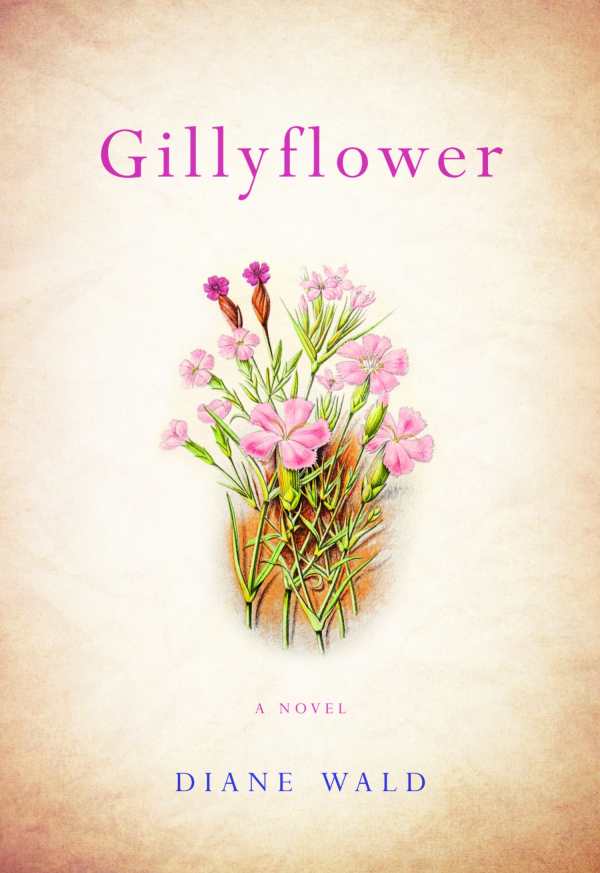Gillyflower
Gillyflower is an intelligent romance about frustrated encounters.
In Diane Wald’s meditative literary novel Gillyflower, a fan is beguiled with an actor.
In 1984, Nora watches an Irish “actor’s actor,” Hugh, perform in a Broadway play. When their eyes meet by chance, they sense a connection. It blooms into a momentous event as Nora and Hugh replay the scene. Nora, who’s left invigorated, considers Hugh a “guardian angel.” Hugh is agitated by the stranger whose gaze almost pulled him through the fourth wall. Their responses result in an original alternative to stories of love at first sight.
Whether or not the look meant as much as the characters believe it did is ambiguous. What’s more important is the fact that the look sparks Hugh’s disquiet, resulting in an atypical romance in which neither character defines their interest as love, though they find themselves dwelling on each other.
From this spare premise emerges a delicate character study in which a single shared look impacts several lives—a psychological drama with an otherworldly atmosphere. As Nora questions whether her fascination with Hugh could be misread as obsession, and Hugh wonders if Nora’s power is due to witchery, both find themselves less and less able to draw conclusions that satisfy them. The book does not come down on the side of coincidence or fate; its intimacies are of the kind that can’t be fathomed.
Characters are seen through one another’s eyes. To Nora, Hugh is an inspiration, though he’s an aging man whose life has been narrowed by stardom’s demands and his health. Hugh, looking for one more chance to feel human, concentrates on Nora’s art as that which sets her apart. It comes as little surprise that Nora and Hugh meet again. When their expectations meet reality, the result is haunting, leaving both to contemplate where alternative choices might have led them.
Chapters alternate between focusing on Nora; Hugh; Hugh’s personal assistant, Leon; and Nora’s husband, Rick, who suspects little and respects his wife’s fandom. Nora’s thoughts on Hugh and Hugh’s loneliness behind the limelight are taut and clear, while Leon and Rick’s views of Nora and Hugh’s responses after the play are wider. Leon and Rick convey vital background information, too, as they reveal their own puzzlement about what leads their companions to change their behavior.
Shifts between narrators build tension and highlight the differences between what characters intend and how others interpret their actions. For all of the drama that’s involved in teasing out the repercussions of one moment—which lasted for less than a minute—the novel is an experiment in restraint. Its introspective passages, images and omens, and subtle characterizations suit this work, and the finale is subdued and potent.
Gillyflower is an intelligent romance about frustrated encounters.
Reviewed by
Karen Rigby
Disclosure: This article is not an endorsement, but a review. The publisher of this book provided free copies of the book and paid a small fee to have their book reviewed by a professional reviewer. Foreword Reviews and Clarion Reviews make no guarantee that the publisher will receive a positive review. Foreword Magazine, Inc. is disclosing this in accordance with the Federal Trade Commission’s 16 CFR, Part 255.

